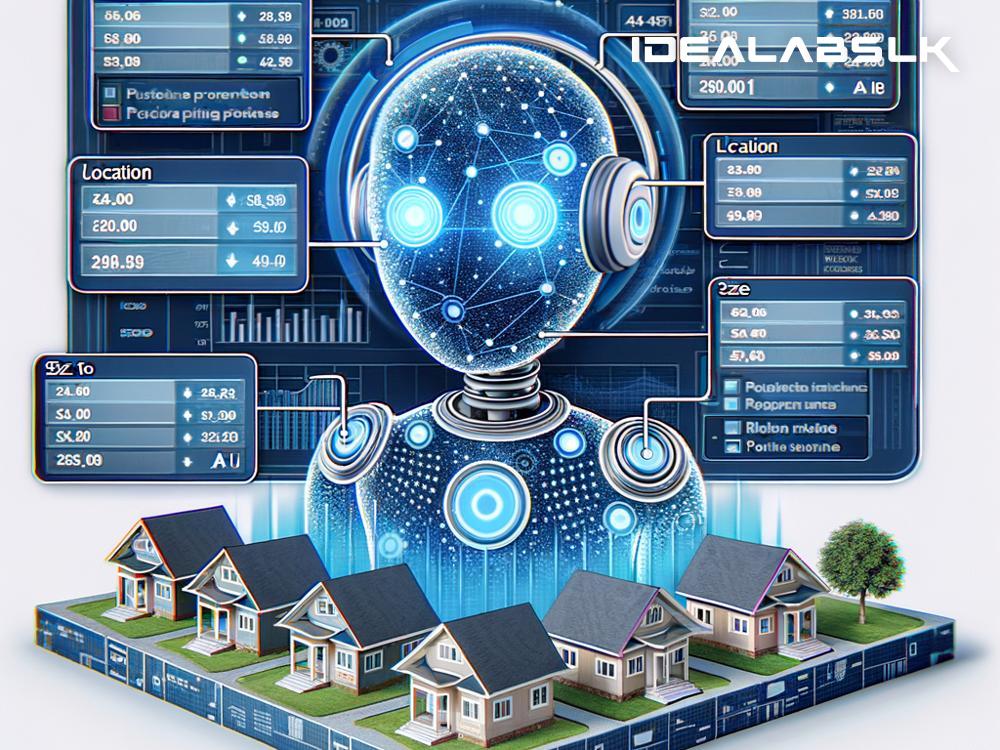The Rise of AI in Real Estate: Transforming Market Value Estimation
In recent years, Artificial Intelligence (AI) has been making waves across various industries, revolutionizing the way we work, think, and make decisions. Among these industries, real estate stands out as a domain where AI's impact has been particularly transformative, especially in the realm of market value estimation. This shift towards leveraging AI tools marks a significant advancement in the real estate sector, ensuring that both buyers and sellers can make well-informed decisions backed by data-driven insights. Let’s explore how AI is redefining the process of estimating market value in real estate and why this technological evolution matters.
The Traditional Approach to Market Value Estimation
Traditionally, estimating the market value of a property has been a time-consuming process, involving real estate agents or appraisers who assess a property based on various factors such as location, size, age, and the prices of similar properties in the area. This method, while effective to a degree, is heavily reliant on human judgment and is susceptible to errors and biases. Moreover, it fails to consider a vast range of variables that can influence a property's value, from economic trends to local development plans.
The AI Revolution in Real Estate
Enter AI, with its ability to process and analyze massive volumes of data at speeds no human can match. In the real estate industry, AI-powered systems are being deployed to predict property values with a level of precision and speed previously unthinkable. But how does AI accomplish this feat, and what makes it so effective?
Data-Driven Insights
AI algorithms can sift through extensive datasets, including historical property prices, neighborhood trends, economic indicators, and even social media sentiment, to identify patterns and predict future market values. This comprehensive analysis ensures that every factor influencing a property’s value is considered, providing a more accurate and holistic view of its worth.
Machine Learning Models
At the heart of AI in real estate is machine learning — a subset of AI that enables computers to learn from and improve upon previous tasks without being explicitly programmed. In the context of market value estimation, machine learning models are trained on vast amounts of real estate data. Over time, these models refine their predictions, becoming more accurate as they digest more data. This means that AI systems get better at estimating property values the more they are used.
Speed and Efficiency
One of the most immediate benefits of using AI for market value estimation is the speed at which it can provide insights. What used to take days or even weeks can now be achieved in mere seconds. This efficiency doesn't just save time; it also allows for more agile decision-making in a market that’s constantly fluctuating.
Objectivity
Unlike humans, AI systems don't have biases or emotions that could sway their judgment. This objectivity ensures that the estimated market value of a property is based solely on data and factual analysis rather than subjective viewpoints.
Real-World Applications
Today, several real estate platforms and companies are utilizing AI to offer instant property valuations online. Users simply enter a property's details, and the AI system provides an estimated value based on its comprehensive analysis. This tool has become invaluable for homeowners curious about their property's worth, potential buyers, and real estate professionals looking to streamline their operations.
The Future of AI in Real Estate
As AI technology continues to evolve, its applications in real estate will only broaden. Future advancements might include even more precise market value estimations, the ability to predict upcoming housing market trends, and personalized property recommendations for buyers based on their preferences and behaviors.
Conclusion
The integration of AI into real estate market value estimation represents a significant leap forward for the industry. By harnessing the power of algorithms and machine learning, real estate professionals, buyers, and sellers now have access to accurate, efficient, and unbiased property valuations. This shift not only simplifies the decision-making process but also empowers all parties with a deeper understanding of the market dynamics at play. As we look to the future, it’s clear that AI will continue to play a pivotal role in shaping the real estate landscape, making it more accessible, transparent, and informed.

